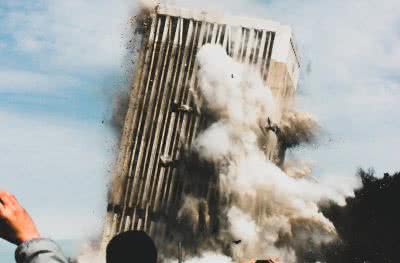ความหมายของคำ collapse ในภาษาไทย
collapse ในภาษาอังกฤษหมายถึงอะไร? มาร่วมค้นหาความหมาย การออกเสียง และวิธีใช้คำนี้อย่างละเอียดกับ Lingoland
collapse
US /kəˈlæps/
UK /kəˈlæps/

กริยา
1.
พังทลาย, ทรุดตัว
to fall down or in; to give way
ตัวอย่าง:
•
The old bridge finally collapsed under the heavy load.
สะพานเก่าในที่สุดก็พังทลายลงภายใต้น้ำหนักที่มาก
•
The building was so old it was in danger of collapsing.
อาคารเก่ามากจนเสี่ยงต่อการพังทลาย
2.
ร่วงลง, พังทลาย
to suddenly lose force, value, or effect
ตัวอย่าง:
•
The company's shares collapsed after the scandal.
หุ้นของบริษัทร่วงลงหลังเกิดเรื่องอื้อฉาว
•
His hopes of winning the election collapsed when the results came in.
ความหวังของเขาที่จะชนะการเลือกตั้งพังทลายลงเมื่อผลออกมา
คำพ้องความหมาย:
3.
ทรุดตัว, หมดสติ
to fall unconscious or become very weak, typically as a result of illness or injury
ตัวอย่าง:
•
She collapsed from exhaustion after running the marathon.
เธอทรุดตัวลงด้วยความเหนื่อยล้าหลังจากวิ่งมาราธอน
•
He collapsed on the floor, clutching his chest.
เขาทรุดตัวลงกับพื้น กุมหน้าอก
คำนาม
1.
การพังทลาย, การทรุดตัว
an instance of a structure or object falling down or in
ตัวอย่าง:
•
The sudden collapse of the roof trapped several workers.
การพังทลายของหลังคาอย่างกะทันหันทำให้คนงานหลายคนติดอยู่
•
Engineers are investigating the cause of the bridge's collapse.
วิศวกรกำลังสอบสวนสาเหตุของการพังทลายของสะพาน
คำพ้องความหมาย:
2.
การล่มสลาย, ความล้มเหลว
a sudden failure of an institution, system, or undertaking
ตัวอย่าง:
•
The economic collapse led to widespread unemployment.
การล่มสลายทางเศรษฐกิจนำไปสู่การว่างงานอย่างกว้างขวาง
•
The sudden collapse of the government surprised everyone.
การล่มสลายอย่างกะทันหันของรัฐบาลทำให้ทุกคนประหลาดใจ
3.
การหมดสติ, การทรุดตัว
a sudden loss of consciousness or energy
ตัวอย่าง:
•
He suffered a sudden collapse and was rushed to the hospital.
เขาหมดสติอย่างกะทันหันและถูกนำส่งโรงพยาบาล
•
The heat caused several runners to experience a collapse.
ความร้อนทำให้มีนักวิ่งหลายคนหมดสติ
คำพ้องความหมาย: